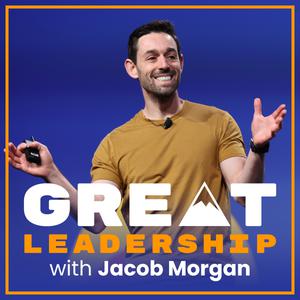
Great Leadership With Jacob Morgan
Jacob Morgan
- 5 minutes 45 secondsSparks: The Vulnerability Wheel and How Vulnerability Can Be Used For and Against Your Favor
Have you ever wondered if vulnerability could backfire? Leaders often face tough decisions about when and how to be open, and the stakes are high when trust is involved. In today's Leadership Spark, we explore a powerful story about a CEO who learned hard lessons about vulnerability after it was used against her early in her career. You'll hear insights on navigating trust, why vulnerability is essential for leadership, and how self-compassion can be your safety net when things go wrong. This episode also introduces the "Vulnerability Wheel" framework to help leaders use vulnerability effectively.
________________
Start your day with the world’s top leaders by joining thousands of others at Great Leadership on Substack. Just enter your email: https://greatleadership.substack.com/
24 January 2025, 8:01 am - 1 hour 54 secondsHow Lumen CEO Kate Johnson Changed the Culture of a Billion-Dollar Company From Playing Not to Lose to Playing to Win
Turning around a struggling company isn’t for the faint of heart, but Kate Johnson, CEO of Lumen Technologies, is proving it can be done—and done well. Leading 30,000 employees and steering billions in revenue, Kate is tackling one of the toughest challenges in business: shifting a telecom giant from “playing not to lose” to “playing to win.” In this episode, Kate opens her fresh and fearless playbook on what it really takes to transform a culture: it starts with clarifying your mission and getting everyone aligned. She shares bold, practical strategies like fostering trust, teaching resilience, and encouraging courageous conversations that push teams forward, not sideways. We’ll also unpack why most leaders fail at culture change (and it’s not for lack of trying), how to break silos by getting close to the action, and the non-negotiables for any leader’s first 100 days. If you’re ready to rethink what it means to lead and create a culture that wins, you don’t want to miss this one.
________________
Start your day with the world’s top leaders by joining thousands of others at Great Leadership on Substack. Just enter your email: https://greatleadership.substack.com/
20 January 2025, 8:01 am - 5 minutes 19 secondsSparks: Flexibility in the Workplace: The Importance of Consistency and Conviction in an Evolving Organization
Workplace flexibility isn’t new, but its importance is growing. More than just remote or hybrid setups, it’s about giving employees options in career paths, benefits, and how they work best. In today’s Leadership Spark, we explore why leaders must stay true to their company’s culture and values, especially in uncertain times. Flip-flopping on big decisions leads to mistrust, but clear communication and conviction create alignment and loyalty. Learn how successful companies navigated the return to office with confidence and how to lead in uncertainty by knowing what matters most to your organization and standing by it, even as the workplace continues to evolve.
________________
Start your day with the world’s top leaders by joining thousands of others at Great Leadership on Substack. Just enter your email: https://greatleadership.substack.com/
17 January 2025, 8:01 am - 52 minutes 29 secondsThe Workplace is NOT Dead! Reimagining Leadership and Employee Engagement for 2025 and Beyond
The office isn’t dead—it’s evolving. How do you design a workplace where you could inspire creativity, collaboration, and sustainability? Jordan Goldstein and Elizabeth Brink, co-CEOs of Gensler, the world’s leading design firm, know all about it. They’ve not only spearheaded some of the most iconic workplace designs but but have also championed a co-leadership model that fosters synergy and innovation. Jordan and Elizabeth are behind groundbreaking projects like Under Armour’s net-zero headquarters, vibrant mixed-use lifestyle districts, and adaptive reuse designs that breathe new life into old spaces. In today’s episode, we’ll explore why the office is still vital for culture and collaboration, how to design spaces that foster engagement and innovation, and why immersive technology and sustainability is no longer optional in workplace design. The future of work is more exciting than ever and packed with opportunities to rethink space, culture, and collaboration.
________________
Start your day with the world’s top leaders by joining thousands of others at Great Leadership on Substack. Just enter your email: https://greatleadership.substack.com/
13 January 2025, 8:01 am - 9 minutes 22 secondsSparks: Think Like a Futurist: Making a Future-Ready Organization Through Scenario Thinking and AI
Are you shaping the future or letting it shape you? In today’s Leadership Spark, we explore how leaders can think in scenarios to prepare for multiple outcomes and avoid being caught off guard. We also dive into the power of AI tools like ChatGPT, which are transforming how leaders train employees, boost productivity, and solve problems. But with great power comes responsibility—balancing AI’s potential with human judgment is key to building the future of work.
________________
Start your day with the world’s top leaders by joining thousands of others at Great Leadership on Substack. Just enter your email: https://greatleadership.substack.com/
10 January 2025, 8:01 am - 49 minutes 38 secondsNew Year, New Leader: The Key to Future Ready Leadership in 2025
If leadership were easy, everyone would do it—but here’s how the best make it look effortless. In this special episode of Future Ready Leadership, three visionary leaders share powerful, actionable strategies to help you activate teams, build unshakable trust, and transform workplace culture. Rachel Cooke, former Director of HR at American Express, host of the Modern Mentor podcast, and founder of Lead Above Noise, unpacks her four-pillar framework for driving team success through connection, development, and well-being. Chris Nicholas, CEO of Sam’s Club, shares his Trust Equation, showing why authenticity and transparency are the foundation of impactful leadership. Lastly, we have Melanie Dulbecco, CEO of R. Torre & Co., Inc., who reveals how a people-first culture can become your ultimate competitive advantage, with insights on purpose-driven operations and profit-sharing. Get ready to lead with purpose and shape the future of work. They say leaders are born, not made—but this episode proves the opposite with strategies you can’t afford to miss.
________________
Start your day with the world’s top leaders by joining thousands of others at Great Leadership on Substack. Just enter your email: https://greatleadership.substack.com/
6 January 2025, 8:01 am - 14 minutes 3 secondsSparks: The Three Pillars of Employee Experience: How Technology, Culture, and Physical Space Can Help You Build the BEST Workplace
What shapes the employee experience? In this episode of Leadership Spark, we explore the three pillars that define it: physical space, technology, and culture. Physical environments contribute 30% of employee satisfaction, with top companies creating flexible, activity-based spaces. Technology, also 30%, acts as the central nervous system but becomes a human problem when it fails. Culture, the most impactful at 40%, determines how employees feel and connect to purpose. Through compelling stories and research, we unpack how leaders can design workplaces that inspire, support, and engage.
________________
Start your day with the world’s top leaders by joining thousands of others at Great Leadership on Substack. Just enter your email: https://greatleadership.substack.com/
3 January 2025, 8:01 am - 48 minutes 12 secondsLeaders Without These Skills Are Doomed to Fail in 2025
The workplace is evolving faster than ever, leaving leaders scrambling to keep up with new demands. How can you ensure your leadership skills remain relevant and impactful in 2025? In this episode of Future Ready Leadership, we have experts who will share the tools you need to thrive and stand out as a leader. Tom Henschel, host of The Look and Sound of Leadership, shares the secrets to executive presence—commanding attention and respect in any room. Charles Duhigg, bestselling author of The Power of Habit, teaches us how to master conversations to deepen workplace connections and amplify your impact. Together, they reveal how to lead with authority, connect authentically, and shape your future with confidence. The future is fast approaching—get ready to lead it.
________________
Start your day with the world’s top leaders by joining thousands of others at Great Leadership on Substack. Just enter your email: https://greatleadership.substack.com/
30 December 2024, 8:01 am - 9 minutes 28 secondsSparks: How Vulnerability Can Make or Break a CEO
One CEO was fired for being vulnerable. Another saved their company. What made the difference? In today’s Leadership Spark, we go beyond the theory of leading with vulnerability to explore how it works in real life. Vulnerability isn’t just admitting mistakes—it’s about showing how you’re taking action to close gaps and grow. Through powerful examples, including the contrasting stories of two CEOs who led with vulnerability, you’ll see how balancing openness with leadership drives results. We’ll also unpack common workplace scenarios and share actionable tips for first-time leaders to use vulnerability as a superpower. Learn how to inspire trust while staying accountable in this episode.
________________
Start your day with the world’s top leaders by joining thousands of others at Great Leadership on Substack. Just enter your email: https://greatleadership.substack.com/
27 December 2024, 8:01 am - 50 minutes 20 seconds3 Leadership Insights That Will Help You Conquer 2025
What skills, trends, and strategic thinking do leaders need to embrace for the future? In this episode, we explore three compelling perspectives to help leaders prepare for 2025. Michael Watkins breaks down The 6 Disciplines of Strategic Thinking he authored, showing how leaders can mobilize their teams and make smarter, more impactful decisions. Seth Godin, renowned Author, Entrepreneur, and Founder of the Carbon Almanac, challenges the status quo with his take on why adaptability beats rigid planning and why leaders need to think beyond checklists to thrive. Finally, Nicholas Bloom, William D. Eberle Professor of Economics at Stanford University, reveals surprising data on remote work, from its effects on productivity to what it really takes to retain top talent in a hybrid world.
________________
Start your day with the world’s top leaders by joining thousands of others at Great Leadership on Substack. Just enter your email: https://greatleadership.substack.com/
23 December 2024, 8:01 am - 10 minutes 37 secondsSparks: The Vulnerability Equation: Discussing the Delicate Balance Between Competence and Connection
What does it really mean to lead with vulnerability? In today’s Leadership Spark, we dive into the delicate balance between openness and competence in leadership. Vulnerability is essential for building trust and fostering connections, but simply admitting mistakes isn’t enough, especially in the workplace. Leaders need to pair vulnerability with action. We’ll explore why this concept is more critical than ever in today’s fast-changing environment and how it can help leaders inspire confidence while maintaining accountability. You’ll learn how to embrace this powerful equation: Vulnerability + Leadership = Real Impact.
________________
Start your day with the world’s top leaders by joining thousands of others at Great Leadership on Substack. Just enter your email: https://greatleadership.substack.com/
20 December 2024, 8:01 am - More Episodes? Get the App
Your feedback is valuable to us. Should you encounter any bugs, glitches, lack of functionality or other problems, please email us on [email protected] or join Moon.FM Telegram Group where you can talk directly to the dev team who are happy to answer any queries.
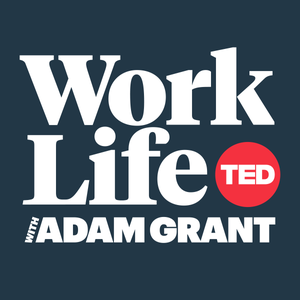 WorkLife with Adam Grant
WorkLife with Adam Grant
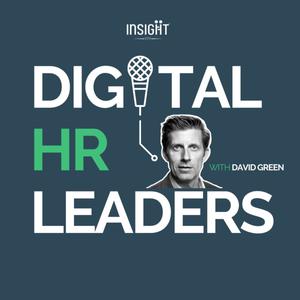 Digital HR Leaders with David Green
Digital HR Leaders with David Green
 The Josh Bersin Company
The Josh Bersin Company
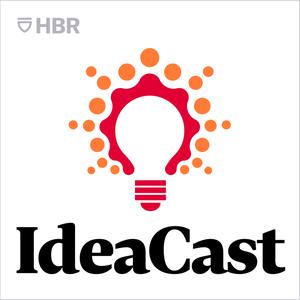 HBR IdeaCast
HBR IdeaCast
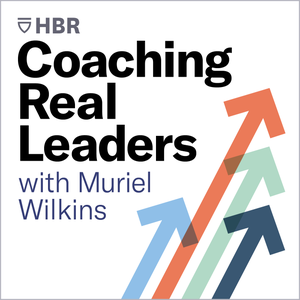 Coaching Real Leaders
Coaching Real Leaders
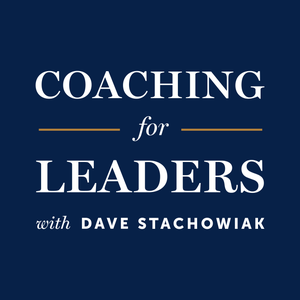 Coaching for Leaders
Coaching for Leaders